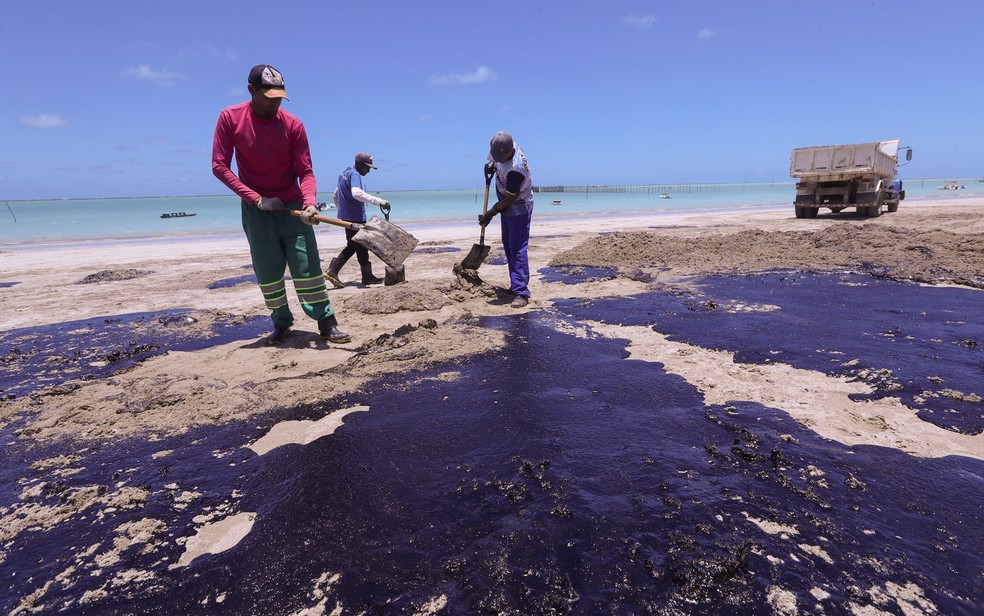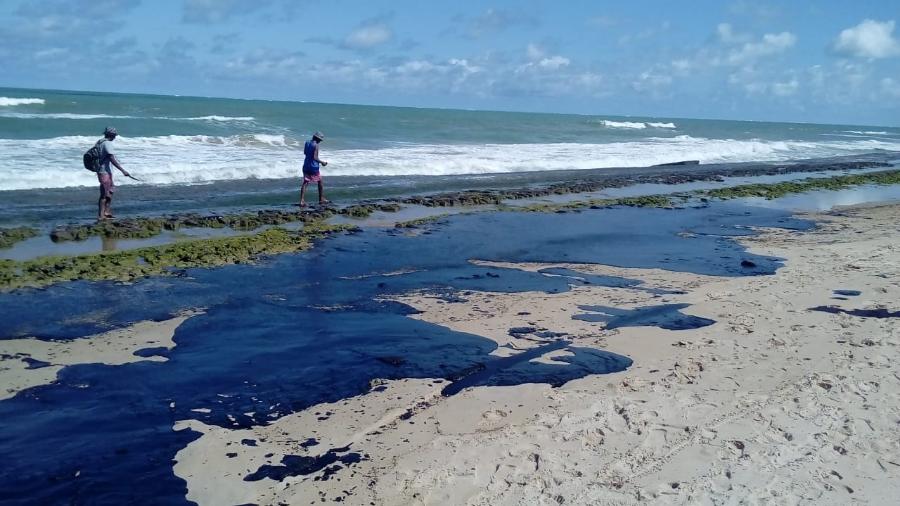RIO DE JANEIRO, BRAZIL – Since the beginning of the emergence of oil slicks on northeastern beaches, more than 4,000 tons of waste have already been removed from these sites, said on Saturday, November 2nd, the Monitoring and Evaluation Group (GAA), made up of the Brazilian Navy (MB), National Petroleum Agency (ANP) and the Brazilian Institute of Environment and Renewable Natural Resources (IBAMA). The disposal of this material is carried out by the Environment Departments of the states.

In a note, the GAA also reported that “small fragments of oil were detected and removed in Ponta da Baleia, in Caravelas and Santa Bárbara Island, in Abrolhos-BA, by Navy teams and ships, together with ICMBio [Chico Mendes Institute for Biodiversity Conservation]”.
According to the group, in order to increase prevention of oil reaching Abrolhos, the following navy ships will continue to operate and monitor the region: Independência e Constituição frigates, Almirante Saboia Combat Car Landing Ship, Atalaia Sweeper Vessel, Antares Oceanographic Ship, Almirante Gastão Motta tanker, Caboclo Warship and Petrobras’ OSRV Viking Surf and Mar Limpo IV ships.
On October 31st, according to the note, the GAA requested Petrobras to transfer the area monitored by the CosmoSkymed satellite, from the Campos Basin (Rio de Janeiro) to the Abrolhos region, aiming to increase monitoring.
The good news, according to the GAA, is that the beaches of the states of Ceará, Rio Grande do Norte, Paraíba, and Pernambuco are clean. The locations still containing oil traces and with ongoing cleaning actions are Maragogi, Japaratinga, Barra de São Miguel, Coruripe, Feliz Deserto, and Piaçabuçu, in Alagoas State; Artista, in Sergipe State; Arembepe, Berlinque, Barra Grande, Cueira, Pratigi, Alcobaça, Mar Moreno, and Piracanga, in Bahia State.

This Saturday, according to the note, 15 ships, four aircraft, three drones, over 2,350 military officers, and 85 lBAMA and ICMBio staff were employed in the work of cleaning the beaches and maritime observation.
The note includes a survey of the equipment and people hitherto employed in the prevention and cleaning of the oil reaching the northeastern beaches: more than 3,370 Navy military personnel, 26 ships, including 22 from the Navy and four from Petrobras, 14 aircraft, including three from the Navy, six from the Brazilian Air Force (FAB), three from IBAMA and two from Petrobras. In addition, 5,000 military personnel and 140 Brazilian Army vehicles, 140 IBAMA, 40 ICMBio, and 440 Petrobras employees were mobilized.
According to the note, Operation ‘Amazonia Azul – Mar Limpo é Vida’ (“Blue Amazon – Clean Sea is Life”), in its final planning stage, will start as of next week. The Navy will carry out humanitarian actions related to the environment, cooperation in the rehabilitation of affected maritime areas and monitoring of Brazilian jurisdictional waters, together with the Army and the FAB.
Lastly, the note states that the “severity, extent and unprecedented nature of this environmental crime require constant evaluation of the structure and the material and human resources employed, in the time and in the amount that is required”.
Source: Agência Brasil

